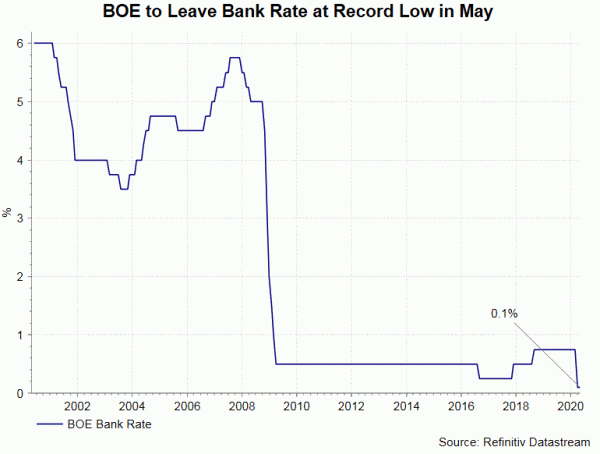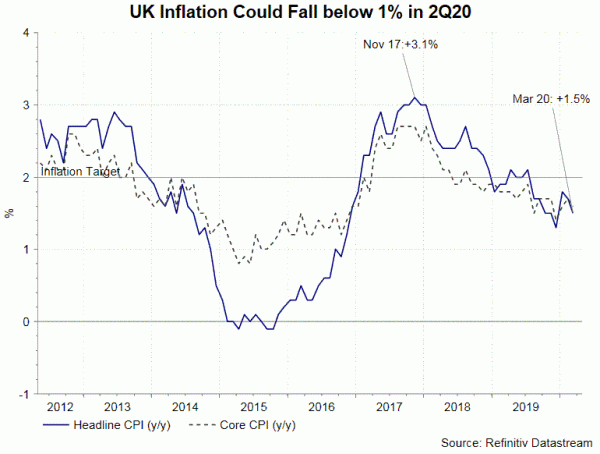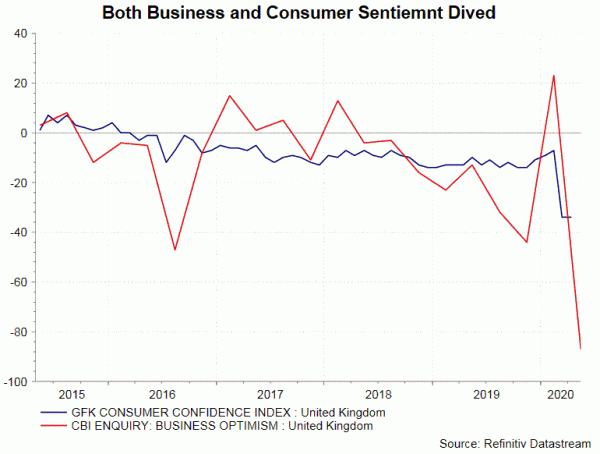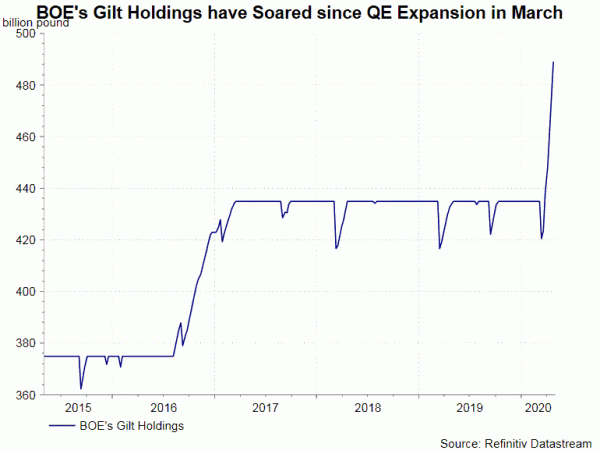We expect BOE to leave both the policy rate and other liquidity expansion measures unchanged this week. Despite government’s plan to ease lockdown measures amidst stabilization of coronavirus cases, the process will be gradual. Meanwhile, social distancing measures will remain for an extended period of time. These suggest that it will be a prolonged period for the economy to recover from the sharp recession brought about by the pandemic. As such, it will be necessary for the central bank to further expand QE.
BOE cut the Bank rate, by a total of -65 bps, to 0.1% in March. Besides, it announced a new Term Funding Scheme for SMEs, a COVID-19 Corporate Financing Facility (CCFF) under which the BoE directly purchases commercial paper issued by credit-worthy non-financial corporate who make “a material contribution to the UK economy” and pledged to support up to 190B pound of bank lending to businesses. On QE, BOE has expanded the Asset Purchase Facility (APF), increasing purchases of UK government bonds and sterling non-financial investment-grade corporate bonds by 200B pound, to a total of 645B pound. This is equivalent to about 18 bps of easing.
Headline CPI eased to +1.5% y/y in March, form +1.7% a month ago. Core inflation slipped -0.1 percentage point to +1.6%. On the job market, claimant count unemployment increased +12.1K in March, following a +17.3K addition in the prior month. This came in better than consensus of a +172.5K increase. Retail sales in March were disappointing, contracting -5.8% y/y in March, after a flat reading a month ago. The situation in April is likely worse, as suggested by leading indicators. Markit’s manufacturing PMI plunged to 32.9 in April, from 47.8 a month ago. The market had anticipated a milder drop to 42. Other data show that market sentiment remained fragile. GfK consumer confidence declined to -34 from -9 in March. CBI’s business optimism index slumped to -87 in 2Q20, from 23 in the prior quarter.
Indeed, UK’s economy will continue to struggle throughout the year. The economy could have contracted -1.5% q/q in 1Q20, following by a more severe -13% decline in the second quarter. GDP is expected to rebound by +6% in the third quarter. The market currently projects the country’s inflation to weaken to +0.9% y/y in 2Q20, before bottoming at +0.6% in 3Q20. Unemployment rate is expected to jump to 6.4% in 2Q20, before peaking at 6.8% in the third quarter.
Since the announcement to increase the size of QE by 200B pound on March 19, the central bank has been on track to purchase gilt by 13.5B pound per week. As of April 24, BOE’s gilt holding has increased to 489B pound. If BOE maintains the current pace of asset purchase, it will reach the target holding of 645B pound by early July. If it seeks to expand the size, the announcement will more appropriately be made at the May or June meeting.




